GENERAL DATA
In manufacturing: Chemical, De-icing, Oil & Gas, Electrolysis, Metal, Textile, Rubber, Pharmaceutical, Soap, and Pigment industries, for Water treatment.
In food: All foods
🧂 Industries That Use Iranian Orange/Pink Salt Stone
Iranian Orange or Pink Salt, often referred to as Persian Mineral Salt or Color Rock Salt, is naturally harvested from ancient salt mines in Semnan, Garmsar, and Khewra regions (Iran-Pakistan borderlands). It’s valued for its mineral richness, color variations, and purity.
The beautiful hues range from light pink to deep orange, depending on iron oxide and trace mineral content.
1. Food & Culinary Industry
Used in gourmet and health-conscious cooking as a natural alternative to table salt.
Applications include:
-
Culinary seasoning (powdered or crushed)
-
Meat rubs and marinades
-
Finishing salt for plating
-
Pickling agent in traditional recipes
-
Artisanal flavored salt blends (with herbs, flowers, etc.)
Formats:
-
Powder (fine salt)
-
Coarse crystals
-
Decorative salt blocks (for grilling or serving)
-
Whole rock crystals (for grinders)
✅ Key culinary traits:
-
Milder saltiness than refined salt
-
Rich mineral taste
-
Slight earthy/metallic undertone (from iron and trace elements)
2. Health & Wellness Industry
Due to its natural origin and mineral content, pink/orange rock salt is marketed for:
-
Electrolyte replenishment (e.g., salt water solutions)
-
Salt lamps and inhalers
-
Detox baths and scrubs (when mixed with essential oils or herbs)
-
Ayurvedic and Persian traditional medicine: supports digestion, detoxification, and pH balance
✅ Contains trace minerals like:
-
Iron oxide (color source)
-
Magnesium, Calcium, Zinc, Potassium
⚠️ Note: Despite marketing, scientific backing for therapeutic benefits remains limited.
3. Spa & Cosmetic Industry
Crushed or ground pink/orange salt stone is used in:
-
Exfoliating scrubs and bath salts
-
Mineral soaks for muscle recovery
-
Body polishes for skin detox and circulation
-
Handcrafted soaps with salt grains
Also used in halotherapy rooms and sauna salt walls for air purification and ambiance.
4. Craft & Decor Industry
The unique coloration and crystalline texture make Iranian pink/orange salt attractive for:
-
Salt lamps (ion-generating decor)
-
Tealight holders
-
Tableware like salt serving plates
-
Artisan crystal kits or souvenir bottles
✅ Often paired with resin, wood, or glass crafts
5. Export, Ethnic & Gourmet Market
Highly demanded in:
-
Health food stores
-
Persian grocery markets
-
Luxury and wellness e-commerce
-
Boutique kitchenware brands
Export formats:
-
500g to 25kg food-grade packs
-
Loose crystals in bulk sacks
-
Coarse ground or prefilled salt grinders
-
Spa-grade fine salt for cosmetics
✅ Summary of Key Applications
| Industry | Common Uses |
|---|---|
| Food & Culinary | Seasoning, plating, meat rubs, decorative blocks |
| Health & Wellness | Detox baths, oral salt water, mineral hydration, folk medicine |
| Spa & Cosmetics | Scrubs, masks, bath salts, halotherapy |
| Craft & Decor | Lamps, trays, salt blocks, souvenir items |
| Export & Ethnic Market | Gourmet packaging, grinders, bulk sacks for culinary or spa use |
🌟 Key Features of Iranian Orange/Pink Salt Stone
-
🧂 100% natural, unrefined mineral salt
-
🌈 Color from iron oxide, ranging light pink to deep orange
-
⛏️ Mined from ancient salt deposits in Garmsar, Semnan, and Persian plateau
-
🧪 Contains 84+ trace minerals (marketing claim), including iron, calcium, magnesium
-
🍽️ Lower sodium content than commercial refined salt
-
🛁 Multi-industry use: food, health, beauty, and design
🧂 Industries That Use Persian Blue Salt Stone (Iranian Blue Rock Salt)
Persian Blue Salt is a visually striking and mineral-rich salt harvested from ancient salt mines in Semnan province, Iran, especially around Garmsar and the Zagros mountain range. Its unique blue hue comes from natural potassium crystal structures and sylvinite, a rare mineral inclusion formed under high-pressure conditions over millennia.
1. Gourmet Food & Culinary Industry
Highly valued as a luxury finishing salt due to its bold visual appeal and distinct flavor.
Applications:
-
Sprinkled on fine dishes like seafood, foie gras, or desserts
-
Used in exotic spice blends and premium salt sets
-
Paired with truffles, caviar, or dark chocolate
-
Infused in olive oils or gourmet butter
✅ Flavor profile:
-
Initially mild, then intensely salty with a mineral bite
-
Slight citrus or metallic finish
-
Crunchy, crystalline texture
🟦 Blue color appears strongest in whole crystals, less so in powdered forms
2. Health & Wellness Industry
Although more commonly known for culinary use, Persian Blue Salt is occasionally used for:
-
Mineral supplementation in trace doses
-
Exotic bath salt blends for luxury spas
-
Salt inhalers or lamps (mainly decorative rather than therapeutic)
✅ Rich in:
-
Potassium (sylvinite content)
-
Iron, calcium, and trace elements
⚠️ Used sparingly due to its rarity and cost.
3. Luxury Packaging & Gifting Industry
Persian Blue Salt stone is often marketed in:
-
Glass grinder bottles
-
Hand-labeled ceramic jars
-
Gift boxes for food lovers or gourmet chefs
-
Persian-themed spice collections
Often found in luxury food boutiques, airport gift shops, or online gourmet stores.
4. Natural History & Collectibles Market
Due to its rarity and unique visual properties, blue salt is also appreciated as:
-
Mineral specimen
-
Educational material for geology/mineralogy
-
Display in apothecary-style jars for decor
✅ Whole crystals can resemble blue gemstones or quartz under light
5. Export & Ethnic Market
As a premium export, Persian Blue Salt stone has gained traction in:
-
France, Germany, UK, Japan, and Gulf countries
-
Luxury hospitality & high-end restaurants
-
Health-conscious and gourmet e-commerce platforms
Exported in:
-
Powdered form (limited)
-
Whole crystals or medium grind
-
Decorative rock slabs or collector’s sets
✅ Summary of Key Applications
| Industry | Common Uses |
|---|---|
| Food & Culinary | Finishing salt, exotic seasoning, infused oils |
| Health & Wellness | Trace mineral baths, spa products, gourmet health kits |
| Luxury & Gifting | Designer jars, holiday gifts, Persian salt collections |
| Educational/Collectibles | Crystal display, mineral specimen, geologic showcases |
| Export & Ethnic Market | Boutique retail, online gourmet sales, luxury chef supplies |
🌟 Key Features of Persian Blue Salt
-
💎 100% natural halite with rare blue potassium crystals
-
🧂 Harvested from ancient Iranian salt deposits in Semnan & Garmsar
-
🧪 Contains potassium, calcium, and other trace minerals
-
🔷 Brilliant blue streaks in crystals or coarse grain form
-
⚖️ Used sparingly due to rarity and premium cost
-
🌍 Unique export identity of Iran in luxury salt markets
🧂 Industries That Use Gray/Black Indian Salt Stone (Kala Namak)
Gray or Black Salt Stone, traditionally known as Kala Namak, is a volcanic rock salt rich in sulfur compounds, giving it a distinctive pungent aroma and taste. Although called “black,” the salt appears dark violet-gray to black in stone form and turns pinkish to purplish-gray when ground.
It is mined primarily in the Himalayan regions of India, Pakistan, and Nepal, then kiln-fired and processed with Haritaki (Terminalia chebula) and charcoal, which gives it its unique chemical makeup.
1. Food & Culinary Industry
Black salt is widely used as a culinary spice in South Asian cuisines:
-
Chaat masala, raita, chutneys, and pickles
-
Vegan egg dishes for egg-like sulfur flavor (e.g., tofu scramble)
-
Street foods like pani puri and golgappa water
-
Used in fruit seasoning for a savory-tart effect
✅ Taste profile:
-
Salty, sulfurous, slightly smoky
-
Umami-rich, often described as having a “boiled egg” aroma
✅ Culinary formats:
-
Powdered
-
Crystalline coarse grain
-
Chunk/stone (for grinders)
2. Ayurvedic & Traditional Medicine
A respected salt in Ayurveda and Unani medicine for its tridoshic balancing effects:
Therapeutic uses:
-
Digestive stimulant and anti-bloating remedy
-
Used in purgatives and laxative mixtures
-
Helps with heartburn, flatulence, and acidity
-
Mixed in warm water or herbal decoctions
✅ Often prescribed in:
-
Avipattikar churna
-
Trikatu powder
-
Lemon-black salt water for digestion
3. Health & Wellness Industry
Marketed in wellness circles as:
-
Mineral-rich natural salt
-
Sulfur source supporting skin and hair
-
Used in detox drinks or warm salt flushes
-
Part of halotherapy and salt lamp variants (less common)
✅ Contains:
-
Iron sulfide, hydrogen sulfide, magnesium, chloride, potassium
⚠️ Should be used in moderation due to sulfur compounds.
4. Cosmetic & Personal Care Industry
Used for:
-
Sulfur-based facial masks and detox cleansers
-
Salt foot soaks to treat odor and fungal infections
-
Scrubs for acne-prone or oily skin
-
Sulfurous bath salts for skin therapy
✅ Believed to reduce skin inflammation and body odor due to antibacterial sulfur
5. Craft & Metaphysical Industry
Though less popular than Himalayan pink or blue salts in this sector, gray/black salt is used in:
-
Protective rituals or cleansing rites in metaphysical traditions
-
Apothecary jars and black salt kits for symbolic use
✅ Seen as a grounding and purifying mineral in folk practices
✅ Summary of Key Applications
| Industry | Common Uses |
|---|---|
| Food & Culinary | Vegan egg seasoning, chutneys, masala blends, pickling |
| Traditional Medicine | Digestive aid, anti-gas tonic, Ayurvedic formulations |
| Wellness & Detox | Mineral water flush, sulfur detox, pH balance support |
| Cosmetic & Personal Care | Detox scrubs, acne masks, anti-fungal foot soaks |
| Craft & Metaphysical | Ritual cleansing salt, protective blends |
| Export & Ethnic Markets | Indian groceries, ayurvedic shops, gourmet spice retailers |
🌟 Key Features of Gray/Black Indian Salt Stone (Kala Namak)
-
⛰️ Sourced from volcanic regions of India and Pakistan
-
🧪 Contains sulfur, iron sulfide, chlorides, magnesium, trace elements
-
🌫️ Strong, eggy aroma and earthy taste from hydrogen sulfide
-
⚖️ Used sparingly due to pungency
-
💊 Valued in Ayurveda, Unani, and modern vegan cooking
-
🌍 Exported as stone, granule, or fine powder
🧂 Industries That Use Rock White Salt Stone (Natural White Rock & Crystal Salt)
Rock White Salt—also called Halite, Crystal Salt, or simply Natural Rock Salt—is mined from ancient inland salt deposits and salt domes. It appears in translucent to opaque white or slightly grayish crystalline forms and is often considered the purest form of sodium chloride (NaCl) found in nature.
It is abundant in Iran, Pakistan, India, Germany, and Poland, with Iran’s central desert regions producing large crystal blocks ideal for food, industrial, and cosmetic use.
1. Food & Culinary Industry
Used globally as a raw culinary salt, especially in areas preferring additive-free or unrefined options.
Applications:
-
Grinding for table use
-
Preserving meats (charcuterie, sausages, etc.)
-
Salt-curing cheese and fish
-
Decorative salt blocks or slabs for serving, grilling, or chilling
-
Ingredient in brine solutions for pickles and olives
✅ Culinary Advantages:
-
98–99.5% pure NaCl
-
Neutral taste, free from the sulfury flavor of black salts
-
No added iodine, anti-caking agents, or processing residues
Formats:
-
Fine powder
-
Medium granules
-
Large crystals
-
Solid rock or slabs
2. Industrial & Agricultural Use
White rock salt is heavily used in:
-
Livestock feed and salt licks for mineral supplementation
-
De-icing and snow removal (especially the grayish-grade halite)
-
Chlorine production via electrolysis
-
Soap, textile, and leather industries
-
Water softening and regeneration salts for filtration systems
✅ Industrial-grade variants may contain:
-
Minor traces of gypsum, calcium, or clay
-
Larger crystal sizes for slow dissolution
3. Health & Wellness Industry
Though less “trendy” than pink or blue salts, pure white rock salt is valued for:
-
Oral salt rinses (for gum and throat health)
-
Mineral baths and foot soaks
-
Nasal flushing solutions (as sterile saline)
-
Salt lamps and inhalers for air purification and respiratory care
✅ Known for:
-
Antimicrobial properties
-
Natural exfoliation for skin and scalp
-
Relieving sore muscles and inflammation
4. Cosmetic & Spa Industry
Finely ground white salt is used in:
-
Detox and exfoliating scrubs
-
Facial masks for oily skin
-
Astringent tonics
-
DIY bath bombs and soaps
It’s often marketed as “pure natural salt” for clean beauty formulations.
5. Crafts, Decor & Rituals
Larger white salt crystals are used in:
-
Candle holders and salt lamps
-
Home air purifiers (claimed ionic balance)
-
Traditional energy cleansing rituals
Though less colorful than pink or blue varieties, its clarity and luminescence give it a clean, minimal aesthetic.
6. Export & Packaging Industry
White rock salt is widely exported from Iran and neighboring regions in:
-
Industrial sacks (25 kg–1 ton)
-
Gourmet food jars and grinders
-
Salt blocks and bath-grade packs
Iranian white crystal salt is especially appreciated for:
-
Its high purity
-
Transparent appearance
-
Competitive pricing vs Himalayan pink salt
✅ Summary of Key Applications
| Industry | Common Uses |
|---|---|
| Culinary & Food | Table salt, meat curing, brining, grilling slabs |
| Industrial | Chlorine production, water softening, animal feed, de-icing |
| Health & Wellness | Saltwater gargle, bath soaks, respiratory care |
| Spa & Cosmetics | Scrubs, tonics, soaps, bath bombs |
| Decor & Craft | Salt lamps, candle bases, home wellness |
| Export Markets | Bulk raw crystals, ground powder, bath-grade salt |
🌟 Key Features of White Rock Salt Stone
-
💎 Mined from ancient seabeds and salt domes
-
🧂 Up to 99.5% pure sodium chloride (NaCl)
-
⚪ Translucent to opaque white appearance
-
🧪 Free from additives, chemical refining, or processing agents
-
🐄 Used across human, animal, and industrial sectors
-
🏷️ Available in food-grade, industrial-grade, and cosmetic-grade variants
🧂 Industries That Use Sea Salt (Solar-Evaporated Salt)
Sea Salt is produced by solar evaporation of seawater in salt pans or lagoons, often under warm, dry climates. Unlike mined rock salts, sea salt retains trace minerals (like magnesium, calcium, and potassium), giving it a more complex flavor profile and multiple functional applications.
Major producers include Iran, France, Portugal, India, and Japan, though Iranian Persian Gulf and Caspian Sea coasts have untapped potential for sea salt exports.
1. Culinary & Gourmet Food Industry
Sea salt is widely favored by chefs and home cooks for its clean, oceanic flavor and crunchy texture.
Applications:
-
Everyday table and cooking salt
-
Finishing salt (flakes or crystals)
-
Infused salts (herbs, truffles, citrus)
-
Preserving, curing, and fermenting
✅ Formats:
-
Fine or coarse grain
-
Flakes (e.g., Fleur de Sel)
-
Sea salt sprays or mists
Key culinary values:
-
Milder than rock salt
-
Subtle mineral notes
-
Moisture-retaining in flake form
2. Cosmetic & Spa Industry
Sea salt is a common base in natural beauty formulations.
Applications:
-
Exfoliating scrubs for face and body
-
Salt bath soaks (often mixed with essential oils or dried flowers)
-
Natural deodorants and foot scrubs
-
Scalp and skin detox treatments
✅ Benefits:
-
Rich in magnesium, zinc, and calcium
-
Gently abrasive without microplastics
-
Improves skin tone and texture
3. Health & Wellness Industry
Used for both internal and external therapies:
-
Saltwater gargles and nasal rinses
-
Electrolyte balancing in hydration solutions
-
Mineral soaks for joints and muscle recovery
-
Salt therapy (halotherapy) and body detox
✅ Natural antiseptic and anti-inflammatory properties
4. Industrial & Household Use
Though finer grades are prized in food, coarser sea salt is used in:
-
Natural cleaning agents (e.g., salt + vinegar scrubs)
-
Dishwasher salts to soften hard water
-
Agricultural/mineral licks for livestock (non-edible grade)
-
Soap-making as a hardener or exfoliant
5. Export & Ethnic Market
Sea salt is highly marketable globally in:
-
Gourmet and organic retail chains
-
Ethnic food shops and Persian/Mediterranean stores
-
Cosmetic brands and private-label wellness kits
Packaging includes:
-
Glass jars, pouches, grinders
-
Luxury sets with herbs or truffles
-
Bulk coarse sea salt for processing
✅ Summary of Key Applications
| Industry | Common Uses |
|---|---|
| Culinary & Food | Cooking, seasoning, curing, infused salt blends |
| Cosmetic & Spa | Body scrubs, bath soaks, facial exfoliants |
| Health & Wellness | Gargles, nasal rinses, mineral baths, halotherapy |
| Household & Industrial | Dishwasher salt, natural cleaner, livestock use |
| Export & Gourmet Market | Glass grinders, flake salt, gift kits, private-label spa brands |
🌟 Key Features of Sea Salt
-
🌊 Harvested from evaporated seawater (solar ponds or traditional pans)
-
🧂 Contains sodium chloride + magnesium, calcium, potassium
-
❄️ Available in flakes, coarse crystals, fine ground, or liquid sprays
-
♻️ Natural and sustainable, often solar-evaporated with minimal processing
-
🌍 Popular in organic, vegan, clean-label, and artisanal product lines
🧂 Comparison Table of Major Natural Salts
| Feature / Salt Type | Persian Pink Salt Stone | Persian Blue Salt Stone | White Rock Salt Stone | Black Salt (Kala Namak) | Sea Salt |
|---|---|---|---|---|---|
| Origin | Iran (Semnan, Khorasan) | Iran (Garmsar, Semnan) | Iran, Pakistan, India | India, Pakistan, Nepal | Iran, France, India, Portugal |
| Color | Pink to rose hues | Blue streaks in white salt | White to grayish-white | Gray to black (stone), pinkish when ground | White, off-white, or gray flakes |
| Composition | NaCl with iron oxide (Fe), trace minerals | NaCl with potassium chloride, sylvite | High-purity NaCl (~99.5%) | NaCl + iron sulfide, hydrogen sulfide (sulfur) | NaCl + Mg, Ca, K, trace minerals |
| Taste Profile | Mellow, mildly mineral | Sharp, initially sweet then strong | Clean, neutral | Sulfurous, eggy, slightly smoky | Mild, oceanic, mineral-rich |
| Primary Uses (Culinary) | Finishing salt, meat rubs | Gourmet seasoning, rare exotic salt | Table salt, curing, pickling | Chaat masala, vegan egg dishes, chutneys | Cooking, seasoning, fermenting |
| Primary Uses (Non-Food) | Bath salts, decorative, lamps | Spa products, gemstone decor | Industrial, cosmetic, spa, water softening | Ayurvedic medicine, detox, skin scrubs | Spa scrubs, mineral soaks, air purification |
| Processing | Mined, crushed, unrefined | Hand-mined, rare | Mined, unrefined (can be sun-dried) | Heated with charcoal and herbs | Evaporated from seawater (solar or thermal) |
| Texture/Form Available | Fine, coarse, slabs, blocks | Crystals, small shards | Powder, granule, rock, slabs | Powder, granules, crystals | Fine, coarse, flakes, sprays |
| Medicinal Use | Trace mineral supplement | Rare, sometimes spa/mineral therapy | Gargles, mineral foot soaks, digestive tonic | Digestive aid, Ayurvedic detox | Nasal rinses, skin soaks, electrolyte drinks |
| Export Status (Iran) | Popular in gourmet & wellness markets | Very limited, rare and expensive | Widely available for bulk and industrial use | N/A (mainly from India/Pakistan/Nepal) | Growing, especially in wellness & gourmet |
| Rarity & Price | Moderate rarity | Very rare, premium-priced | Abundant, affordable | Widely available, niche market | Widely available, low to premium ranges |
| Shelf Appeal / Visual Use | High visual appeal for gourmet packaging | Eye-catching, used in luxury salt blends | Clean minimalistic appearance | Ethnic, herbal, Ayurvedic theme | Natural, clean-label, spa-style packaging |
🌍 Summary Highlights
-
Most Sulfurous: 🔥 Black Salt (Kala Namak)
-
Rarest / Exotic: 💎 Persian Blue Salt
-
Most Versatile: 🧂 Sea Salt & White Rock Salt
-
Best for Gourmet Use: 🩷 Persian Pink Salt
-
Best for Therapeutic Use: 🌫️ Black Salt & 🌊 Sea Salt
To order natural salts, please contact us.
About Salt Stone
Salt is a white, solid, and salty combination. Salt is made minerally from the mineral halite or rock salt, which is in the group of halides.
The crystal structure of rock salt stone is isometric and usually in the form of cubic crystals, appears as a coating of fine grains on other minerals, masses with swollen, stalactite and sometimes cubical and asymmetric components.
Rock salt can be colorless, white, yellow, orange, red, pink, or gray, and this variation in color is due to the presence of various impurities. The color of the rock salt powder is white. Rock salt is transparent to semi-transparent and has a glassy sheen.
The degree of hardness of rock salt is 2 to 2.5 and its density is 2.1 to 2.6.
Pink salt is nearly light brown when it’s still in rock form, but when broken to small pieces it looks more like lighter pinkish.
There are two types of Persian Blue Salt stone:
- Crystalline (Garmsar Blue Salt). Mining this stone is very difficult and expensive.
- Semnan Blue Salt stone is extracted as rock salt. The properties and health benefits of this type of salt are similar to the crystal salt rock. There is just one difference which is that this type of salt can be extracted much more and has a more reasonable price than crystal salt.
Blue salt stone is rare, its edible type is crystalline, which is mostly used for therapeutic purposes, and if the Blue Salt rock is opaque, it is not edible and has impurity.
The reason for the blue color of blue salt, except for the presence of Sylvite, is a result of the way the salt crystals refract the light. The reason for this refraction is due to the extreme pressure with which the salt was formed millions of years ago.
Salt Stone Temperament
Second degree of hot and third degree of dry.
Salt Stone Chemical Constituent
Pink: The reason for pink color in Pink Salt is due to iron element which is present in this salt. There are other elements present in it, such as calcium, magnesium, and sodium.
Blue: The Persian blue salt has a high amount of potassium chloride.
It also contains sodium chloride. It contains Sodium, Chlorine, Potassium, Calcium, Iron and Zinc. It does not contain iodine. Typically, blue halite occurs in direct contact with relatively pure sylvite (which is usually milky white).
Relieves flatulence, indigestion, and cold stomachache. Eating some salt at the beginning and end of the meal prevents leprosy, madness, vitiligo, sore throat, toothache and stomach ache. Eating salt with Sekanjabin helps to cure ascites, black bile diseases, phlegm diseases and poisoning caused by opium and poisonous mushrooms. Vomiting after eating salt along with Sekanjebin enemas the stomach.
Keeping a solution of water and salt or a solution of vinegar and salt in the mouth strengthens the gums and relieves the pain of tooth decay.
Salt poultice with olive oil is useful for relieving fatigue and joint pain. Salt poultice with vinegar and honey heals centipede and bee stings. A salt poultice with wheat paste or with honey and olive oil removes boils and abscess.
Salt poultice with Oregano, tallow, and bread dough dissolves phlegmatic edema of the testicles.
Salt poultice with flax seeds heals scorpion stings. Salt poultice with Datura, Oregano and honey treats the genital wound.
Pink Salt Health Benefits
Since Pink Salt doesn’t contain Iodine, it’s suitable for people with hypothyroidism.
Pink Salt can treat arthritis and osteoporosis since it contains calcium. So, it strengthens bones and lower blood pressure due to the presence of sodium.
Pink Salt iron is insoluble in the form of iron oxide, so it can’t be absorbed by the body.
Persian Blue Salt Health Benefits
The use of Semnan blue salt destroys the entire Bartolini’s cyst.
Consumption of it cures high blood pressure, since it contains potassium.
Salt Stone Modifiers
Walking and sitting in water. Eating fresh tallow.
To order pink salt stone, please contact us.

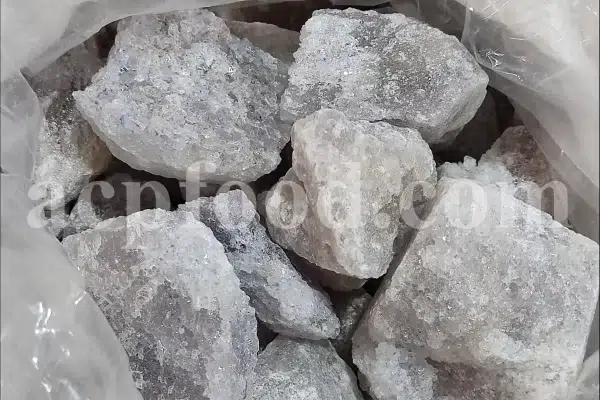
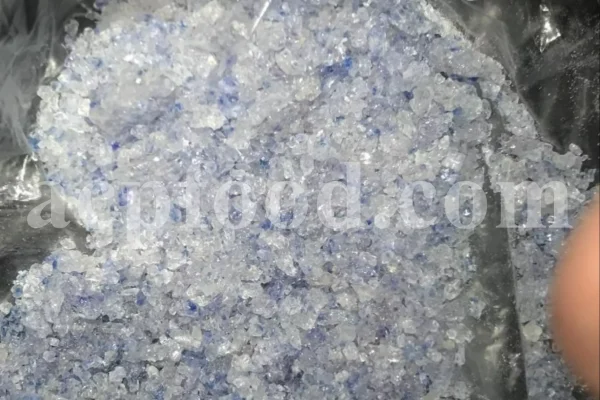
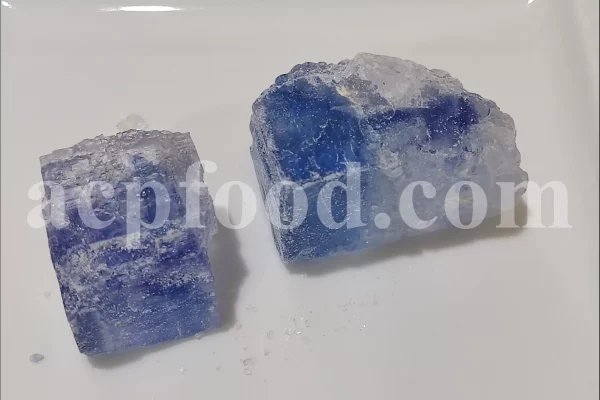

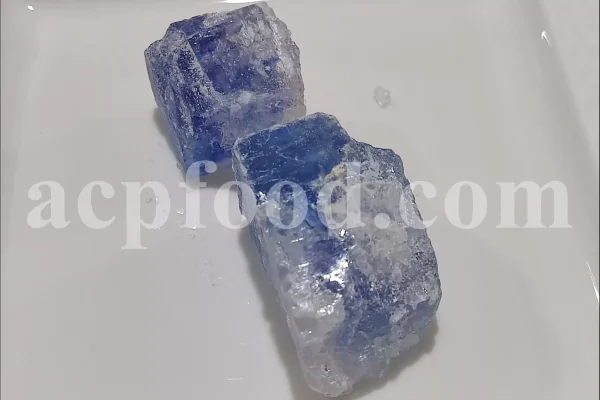
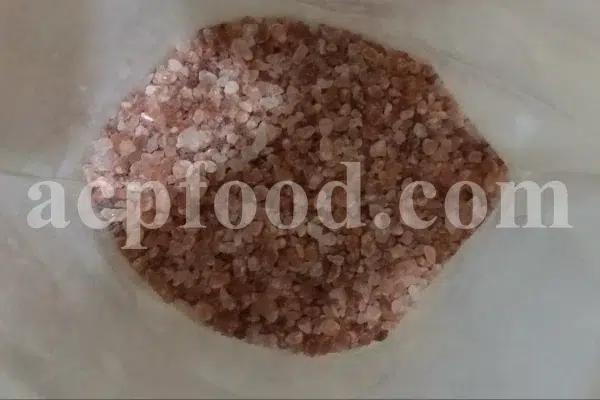
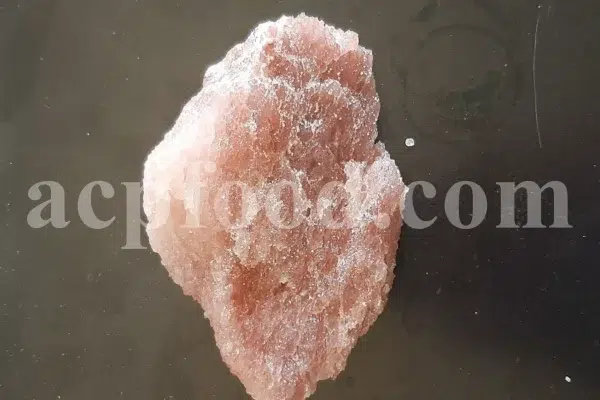
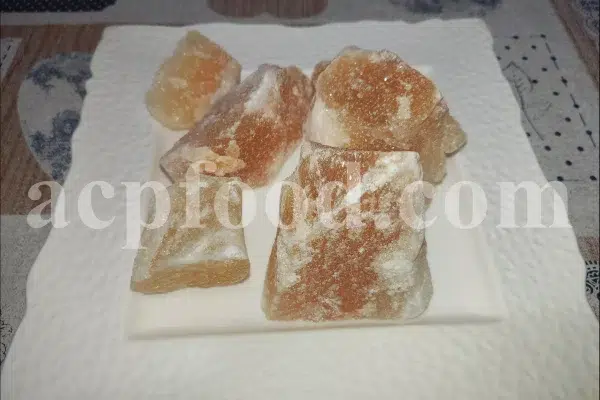
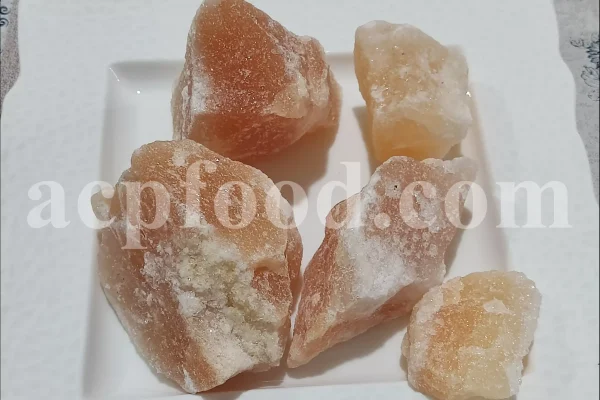
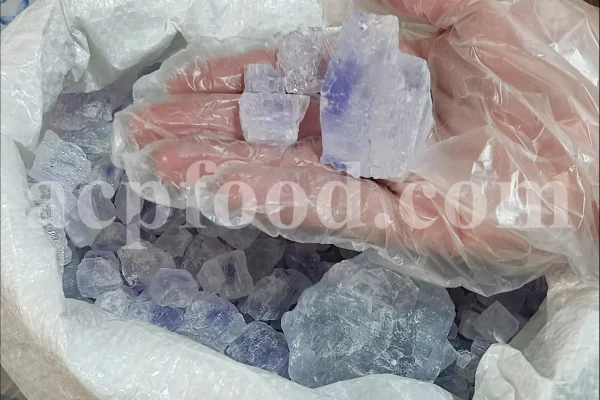
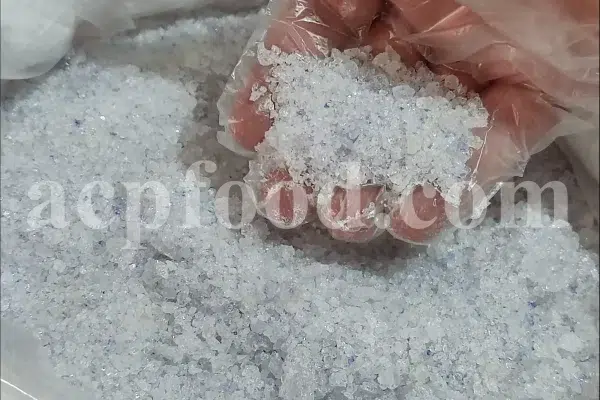
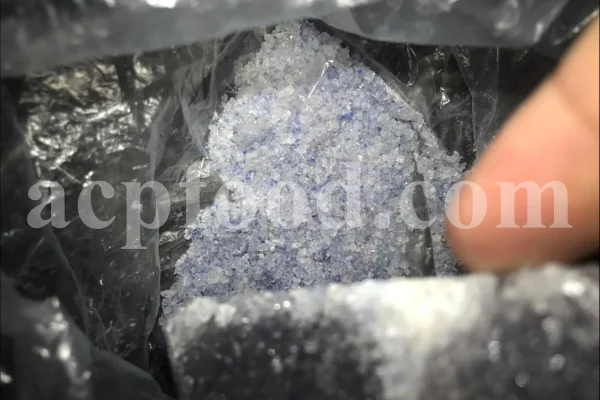
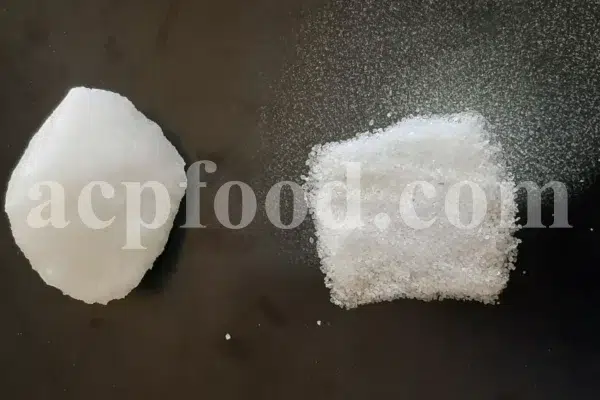
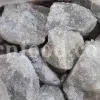
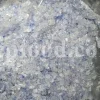
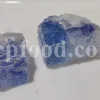
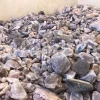
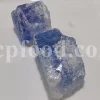
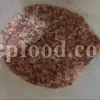
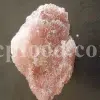

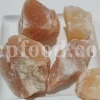
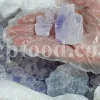
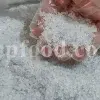
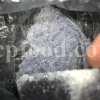
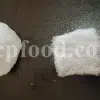
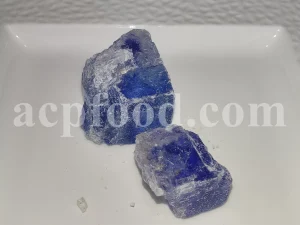
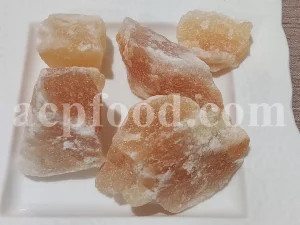
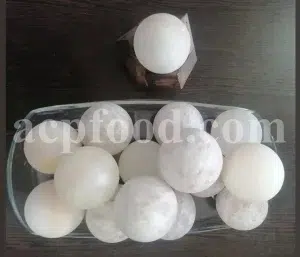
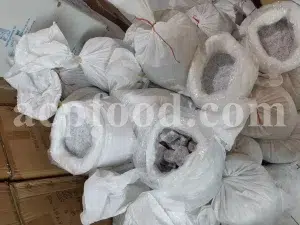
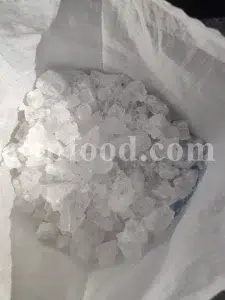
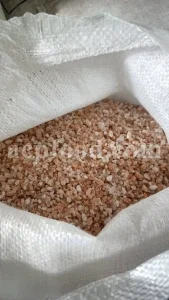
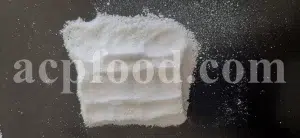
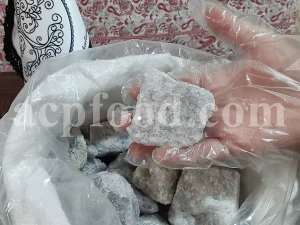
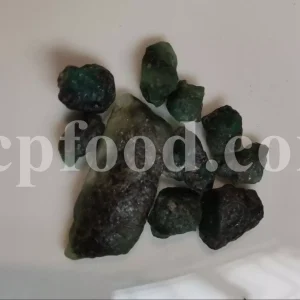
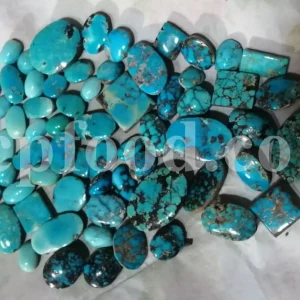
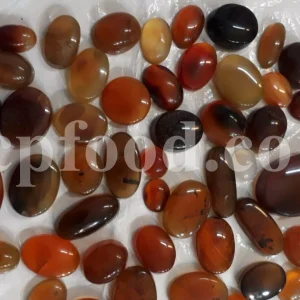
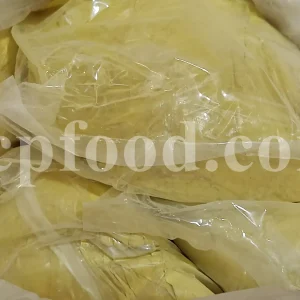
Reviews
There are no reviews yet.